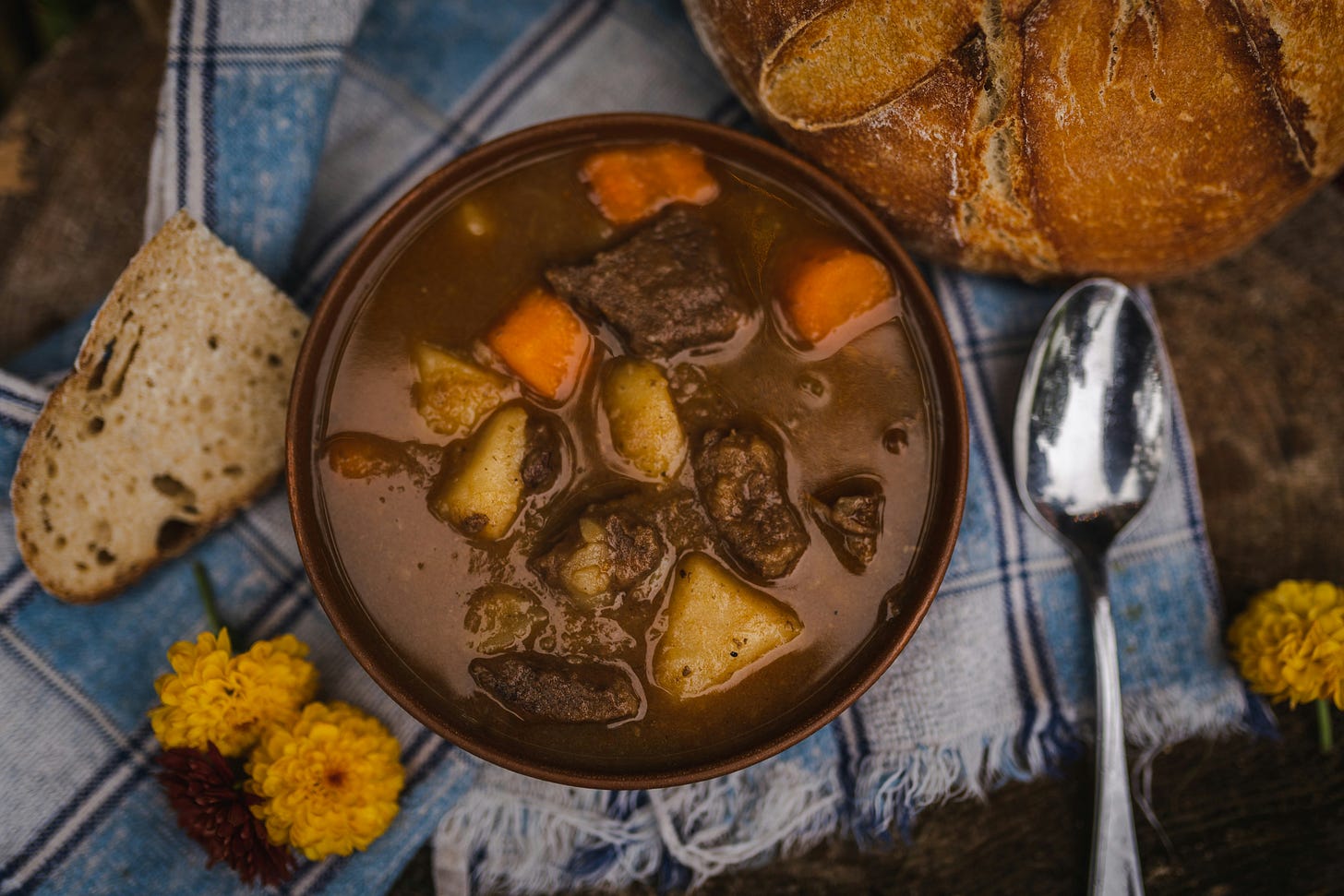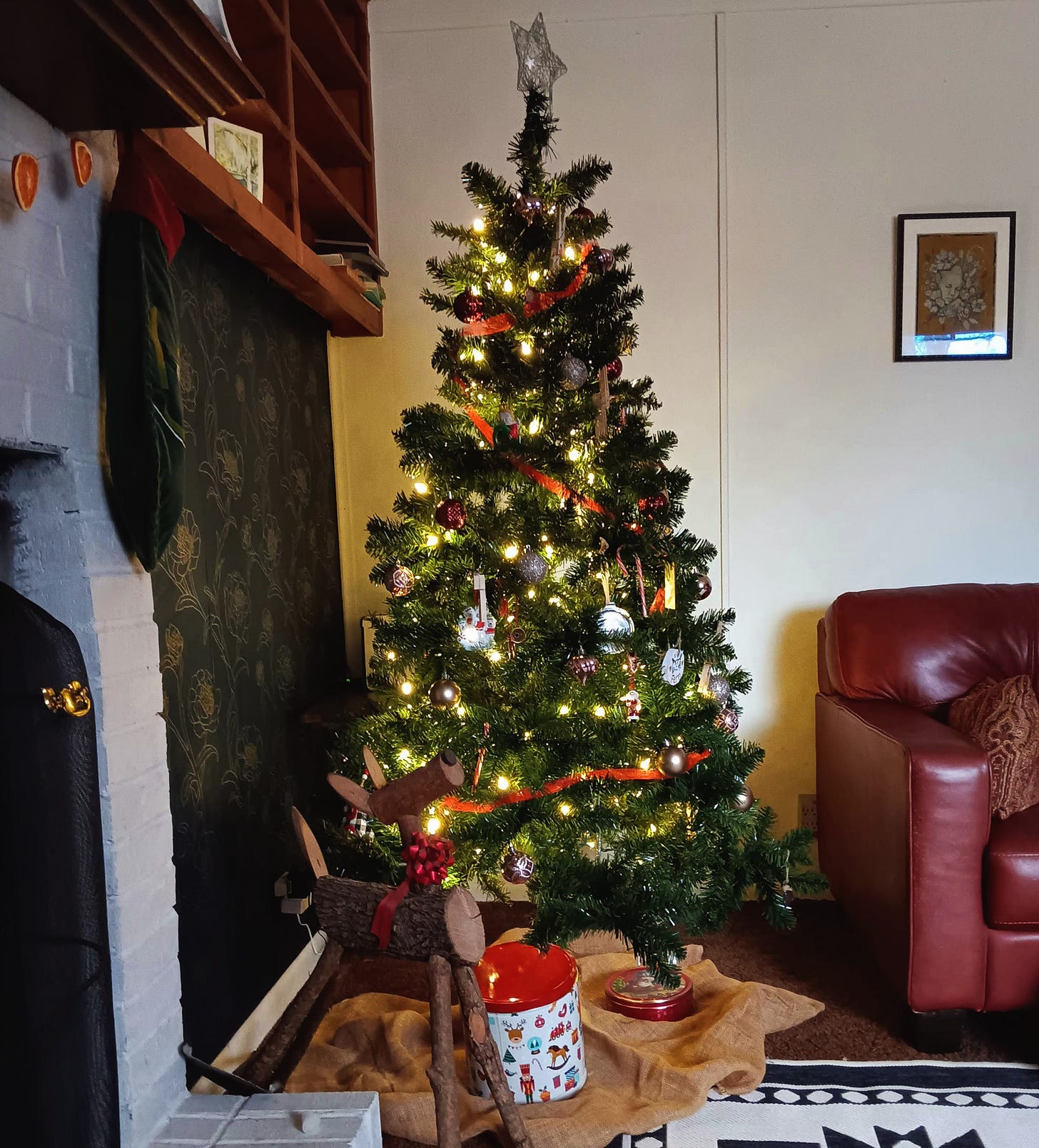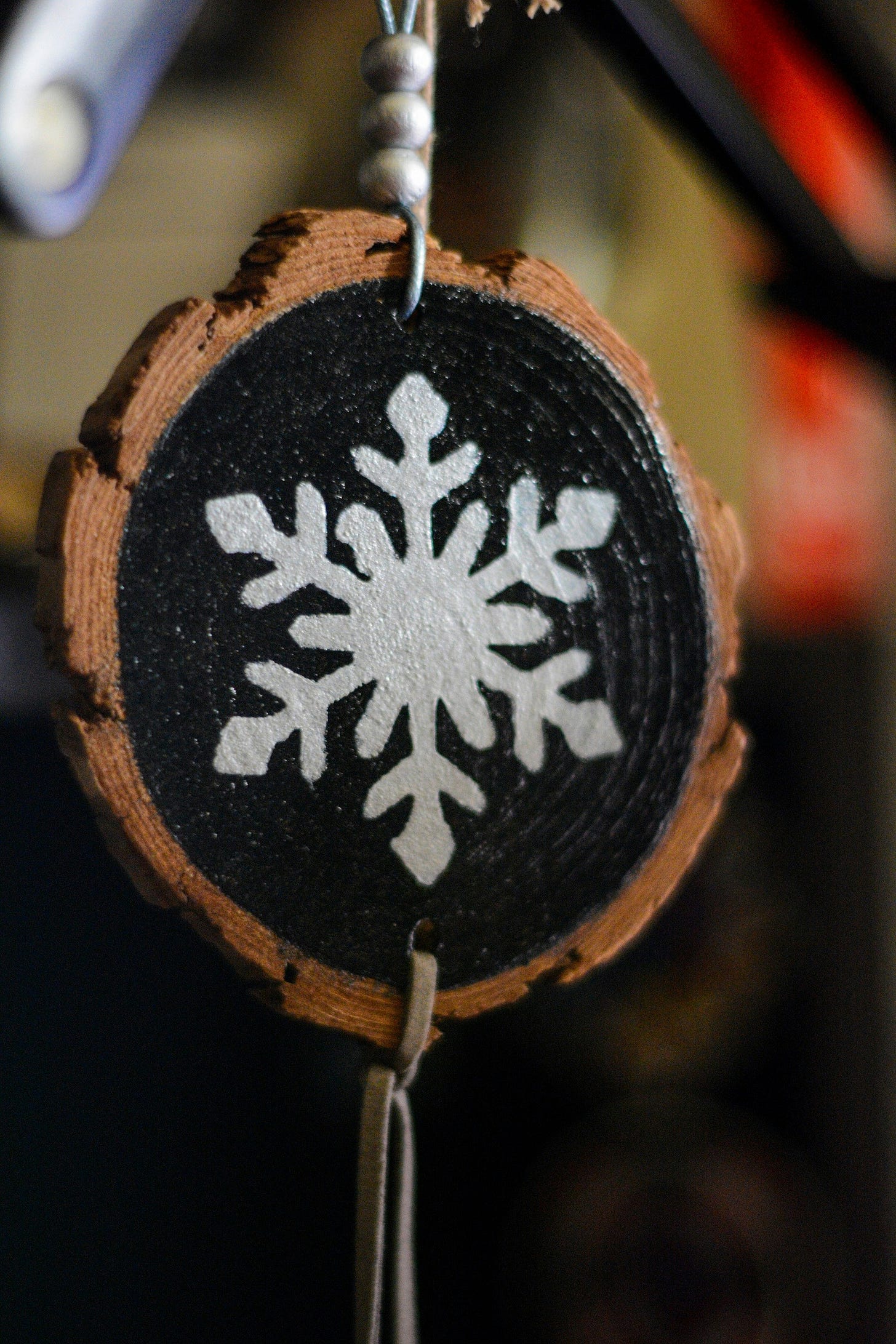Slow Holidays
In Pursuit of a Regulated Nervous System During December
Small, slow systems are more reasonable to maintain than large ones. They make better use of resources and produce more sustainable outcomes. This concept is central to the practice of sustainably growing food and protecting/restoring ecosystems– regenerative agriculture, permaculture gardening, or however you prefer to label it. We benefit from small, slow systems in more aspects of our lives than just growing food though. I think the approaching winter is the perfect time to put this into practice.
You’ve probably heard it before, something like “All other creatures rest during winter, but humans are expected to do more, accomplish more, plan more, attend more, eat more, etc.” It seems that humans have a tendency to lean into what’s expected of us more than we lean into what feels right. Some things we can’t just stop, like jobs that earn us a pay check, chores, caring for others and caring for ourselves. We can slow down though. Besides, sometimes that’s exactly what caring for yourself means. But how do we embrace small, slow systems during winter, in a world that only seems to be increasing in speed and intensity?
Creature Comforts
Winter brings with it a desire to do less and to lean into creature comforts. I don’t mean to say you should sleep all day and gorge yourself on sweets, though those things are certainly comforting at times. Lean in to what feels good and is good for you, like a seasonal diet for example. One that is not restrictive, but embraces warm spices and deeply nutritious foods like sweet potatoes, bone broth, and hot, spiced drinks. In the mid to southeast US, a seasonal diet during winter includes things like sweet potatoes, winter squash, potatoes, dark leafy greens, carrots, pecans, persimmons, and herbs like sage. Rich broths and herbal soups are perfect foods for the dark and cold season. I love the simplicity and creativity that comes with preparing soups. Each time I make soup, it ends up being a much larger quantity than I planned. This is a good problem to have. I always end up sharing it or saving it for dinners throughout the week for us, which means time with those I share it with or less work throughout the week in regard to feeding ourselves– a win either way.
Creature comforts aren’t limited to food, of course. Relaxing evenings spent reading a book, talking with a loved one, baking, or making a craft are essential comforts that get us through the winter. I always find this season a time of rediscovery of hobbies and skills that I get too busy for during the growing season (and our growing season is a very long one). During summer, Damien and I may work in the garden after our day jobs up until sunset at 9pm. In winter, it’s easier to start a relaxing evening at 5 pm sharp, as soon as it’s dark. Winter brings a special, contemplative quiet that I deeply appreciate, and in fact, crave.
Balance
I grew up celebrating Christmas, which meant going with my mom to look at Christmas lights, going to my grandparents’ house to make crafts and drink hot cocoa, and having a big meal together on Christmas day. I was always an introverted only child, preferring to be left alone with my imagination most of the time, but these traditions of togetherness informed my ability to thrive during winter. I didn’t mind the cold and darkness because I knew it meant a balance of delicious food and treats, time with loved ones, and my favorite traditions like baking cookies for Santa, mailing cards, etc. I feel the same way as an adult. I look forward to all of the traditions I’ve developed over time, especially since my nieces and nephews have been born, like decorating an indoor tree, making birdseed ornaments and decorating trees in the forest, having warm fires and homemade chai, baking bread and pies, solstice parties, and handcrafting gifts to name a few.
I still celebrate Christmas with family, but I tend to lean more into winter solstice celebrations these days. Winter solstice involves the aforementioned traditions of togetherness and decorating, but holds an emphasis on nature. Spending time outside during the dark days is vital to a slow and peaceful winter. In the Ozarks, it doesn’t get too terribly cold except on occasion, so this part isn’t too difficult. Most of our winter days are still sunny, if freezing, so it’s still relatively easy to enjoy outside time. A 15-minute walk to the pond is sometimes all it takes to feel a sense of calm and relaxation.
Slow Gifting
For me, one of the most stress-inducing parts of the holidays is shopping, whether it be for gifts or even just groceries during the entire month of December. I find that making handcrafted or thrifted gift-giving a priority is worth it by a long shot. I strongly believe that anyone, artistically inclined or not, can make a heartfelt gift that people will cherish. Handcrafting produces a gift not just for the recipient, but also for the gift giver. Spending time making gifts is so much more fulfilling and will make your nervous system much happier than spending time in crowded box stores.
If you’re not a crafter, you may enjoy visiting small, local shops for handmade gifts, perusing an antique store for something unique and charming, or even scouring a thrift store for something practical. You might consider gifting handmade ornaments, a gift basket filled with homemade treats, something hand-sewn, crocheted, knitted, a small, handmade piece of wooden furniture like a shelf or something similar, or anything you can come up with. I would personally cherish these things much more than any store-bought gift, and I think that’s true for most people.
Slow Systems, in Gardening and in Life
Embracing small, slow systems during the winter months is key to maintaining balance and nurturing our well-being. A slower pace allows us to focus on nurturing out most basic needs and wants, helping us to enjoy seasonal comforts, rediscover hobbies, and offers a much needed respite from the pressures of a very fast moving world. Savor nutritious, warming foods, participate in meaningful traditions, gift thoughtfully, and plan your garden!
Happy Winter Solstice and Happy Holidays!
Cheers,
Allyson







